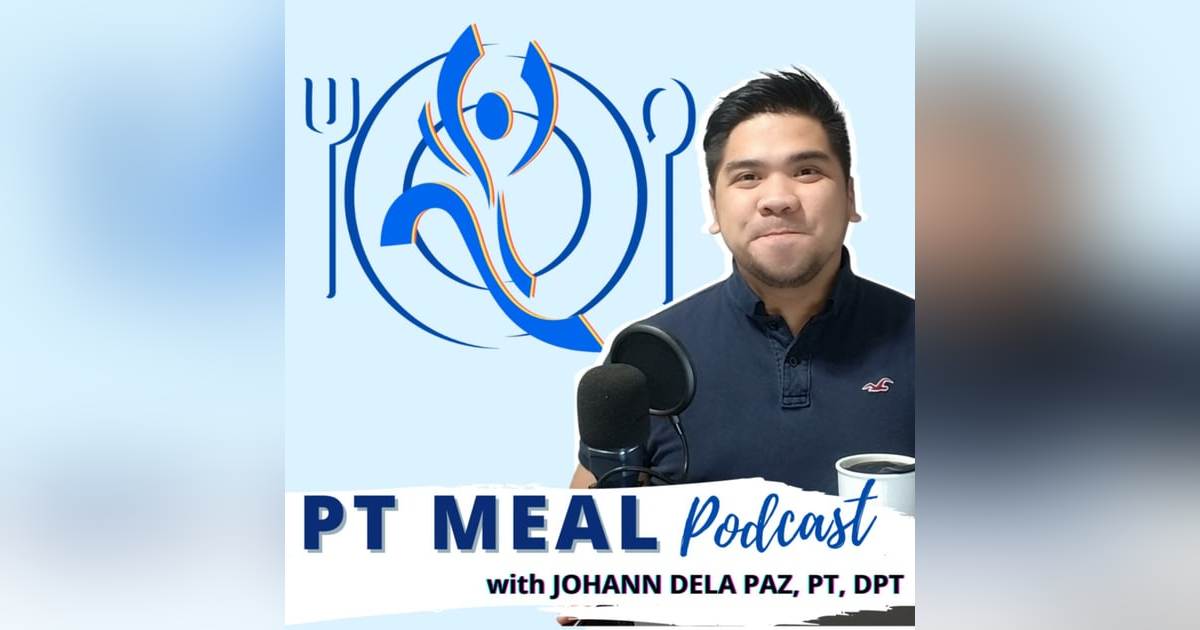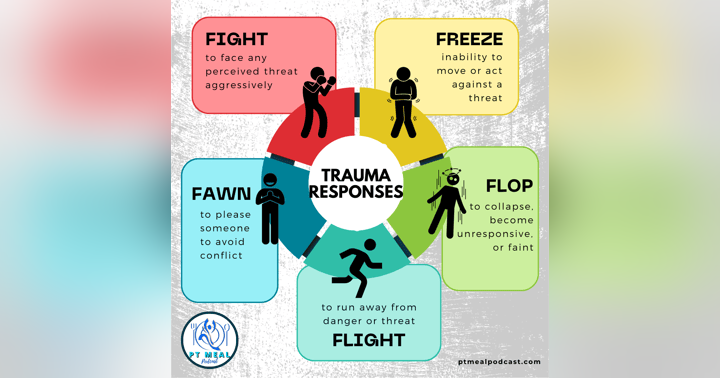A physical therapist experienced a reversible form of dementia, here's what she learned.

In the most recent episode released by PT MEAL Podcast entitled Impact of Dementia to Patients and Caregivers, Riza Carlton Recounts her experience of being diagnosed with a reversible type of dementia and how it changed her life. Back in 2019, Riza noticed changes in herself. She started to become more forgetful and multitasking seemed to have become impossible. A visit to her neurologist provided the answers she was looking for, one of her medications seemed to have a side effect of memory loss. Now, she's sharing her experience with everyone so that family members and primary caregivers may understand what a person with dementia might be feeling and experiencing.
Early detection is key.
Early detection is key when it comes to dementia. When Riza mentioned her medication to her neurologist, she was quickly able to identify the cause of her memory loss. If she hadn't spoken up, she may have suffered for much longer.
It's important to be aware of the early signs of dementia and to be proactive in seeking medical attention if you notice any changes in your behavior or cognition. It's also important to be aware of the lifestyle changes that can help reduce the risk of dementia. Eating healthy, exercising, and getting enough sleep are all important steps in maintaining cognitive health.
Riza's experience also highlights the importance of being there for the people around us who may be suffering from dementia. As a physical therapist, Riza works with patients who struggle to carry on an intelligible conversation and have difficulty finding words. It's important to be patient and understanding with those who suffer from dementia and to provide them with the support and care they need.
Early detection is key when it comes to dementia, and it's important to be aware of the signs and lifestyle changes that can help reduce the risk. We should also be there for our loved ones who may be suffering from dementia, and provide them with the care and support they need.
Changes in dementia.
Dementia is a degenerative condition that affects the brain and can lead to memory loss, confusion, and difficulty with communication and decision-making. It is important to understand that dementia is not a normal part of aging and that there are early signs that can indicate the onset of the condition.
One of the early signs of dementia is forgetfulness. We all forget things from time to time, but if someone is frequently forgetting or misplacing things, this could be a sign of dementia. Another sign is difficulty navigating familiar places, such as a doctor’s office or grocery store. People with dementia may also have difficulty expressing themselves and finding the right words and may become easily frustrated.
It is also important to be aware of the emotional changes that can come with dementia. People with dementia may become more easily upset or frustrated, and may not be able to express their needs. This can be a difficult situation for both the person with dementia and their loved ones.
Caregivers of people with dementia can face unique challenges. It is important to understand that the changes in the brain can lead to difficulty in communication and that it is not necessarily a sign of aloofness or elusiveness. It is also important to provide support and understanding and to help the person with dementia maintain their independence and quality of life as much as possible.
Care with kindness and understanding.
When providing care and support to those suffering from dementia, it is important to remember that kindness and understanding are key. It is essential to remember that the person is not their dementia, and that they are still a person who deserves respect and care. It is important to provide a safe, comfortable environment and to be patient and understanding. It is also important to remember that dementia can cause confusion and agitation, and that it is not the person’s fault.
One way to provide care and support to those suffering from dementia is through touch therapy and music. Touch therapy can help to build trust and provide comfort. Music can also be used to help stimulate the limbic system, which can help to relax and calm the person. Music can also help to provide structure and routine, and can help to bring back memories of happy times. It is also important to remember to be patient and understanding when providing care and support to those suffering from dementia.
It is important to remember that the person may have difficulty understanding and communicating, and that they may be confused and agitated. It is important to remember to be kind and understanding, and to provide a safe, comfortable environment. It is also important to remember to show care and trust, and to introduce yourself.
Providing care and support to those suffering from dementia can be challenging, but it is important to remember to do so with kindness and understanding. It is important to remember to provide a safe, comfortable environment and to be patient and understanding. It is also important to remember to use touch therapy and music, and to show care and trust. By providing care and support with kindness and understanding, it can help to make a difficult situation easier for everyone involved.
Click here to go to the podcast episode page or watch the full conversation from the video below.



